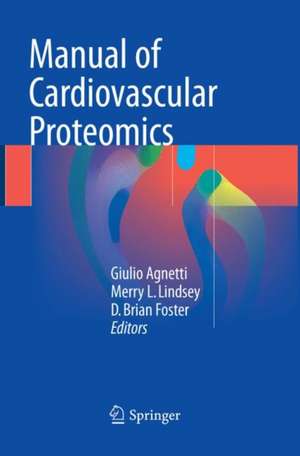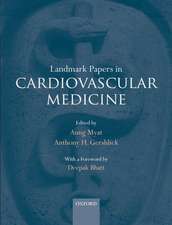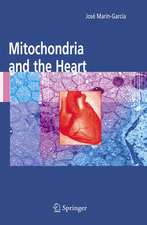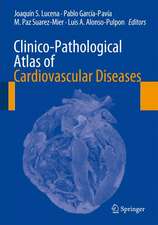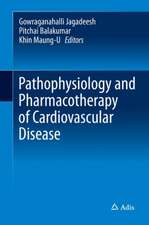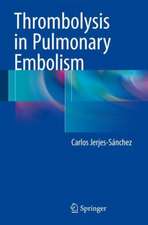Manual of Cardiovascular Proteomics
Editat de Giulio Agnetti, Merry L. Lindsey, D. Brian Fosteren Limba Engleză Paperback – 14 iun 2018
As this technique and its applications have undergone remarkable advances in the past years, recent updates on proteomic applications are covered. Another key concept revealed by proteomic technologies is that the extent of protein post-translational modifications (PTMs) as well as their impact on the phenotype has been underestimated by pre-proteomics science. As such, part of the manual focuses on the emerging role of PTMs in basic cardiovascular sciences andin the clinics.
In fact, there is an emerging consensus that the detailed annotation of protein PTMs could lead to a more in-depth representation of biological systems, translating into more specific targets for therapy as well as biomarkers. Moreover, a recent trend is so-called “targeted proteomics”. The approach was awarded the title of “Method of the Year” by Nature in 2013 (see the editorial by Vivien Marx in 1st issue of Nature in Jan 2013). According to a few proteomic scientists the emphasis should not be placed on generating long lists of proteins but lists of proteins with a true biological meaning.
| Toate formatele și edițiile | Preț | Express |
|---|---|---|
| Paperback (1) | 724.58 lei 38-44 zile | |
| Springer International Publishing – 14 iun 2018 | 724.58 lei 38-44 zile | |
| Hardback (1) | 998.56 lei 38-44 zile | |
| Springer International Publishing – 26 sep 2016 | 998.56 lei 38-44 zile |
Preț: 724.58 lei
Preț vechi: 762.72 lei
-5% Nou
Puncte Express: 1087
Preț estimativ în valută:
138.69€ • 150.70$ • 116.58£
138.69€ • 150.70$ • 116.58£
Carte tipărită la comandă
Livrare economică 18-24 aprilie
Preluare comenzi: 021 569.72.76
Specificații
ISBN-13: 9783319811291
ISBN-10: 3319811290
Pagini: 430
Ilustrații: XVI, 430 p. 65 illus., 58 illus. in color.
Dimensiuni: 155 x 235 mm
Ediția:Softcover reprint of the original 1st ed. 2016
Editura: Springer International Publishing
Colecția Springer
Locul publicării:Cham, Switzerland
ISBN-10: 3319811290
Pagini: 430
Ilustrații: XVI, 430 p. 65 illus., 58 illus. in color.
Dimensiuni: 155 x 235 mm
Ediția:Softcover reprint of the original 1st ed. 2016
Editura: Springer International Publishing
Colecția Springer
Locul publicării:Cham, Switzerland
Cuprins
Introduction: why proteomic is important to you and the broad scientific community.- State-of-the-Art in Cardiac Proteomics.- Pitfalls to be avoided in experimental design.- Proteomic workflow: one size does not fit all.- Bottom-up Proteomics.- Top-Down Proteomics.- Targeted Proteomics.- Data Analysis and Data Mining.- Post-translational Modifications in the Cardiac Proteome.- Taylored Approaches to Study Post-translational Modifications.- Concluding Remarks: Proteomics AD 2025.
Notă biografică
Giulio Agnetti, PhD is an Assistant Professor of Medicine in the Division of Cardiology at Johns Hopkins University. His research over the past 15 years have focused on the clarification of the molecular mechanisms driving the transition from cardiac hypertrophy to heart failure (HF) utilizing proteomic technologies.
Merry Lindsey, PhD is a Professor of Physiology and Medicine and Director of the Mississippi Center for Heart Research at University of Mississippi. She is working extensively in the field of matrix remodeling and cardiac proteomics. Particular interests include inflammatory and fibrotic mechanisms in the pathogenesis of left ventricular remodeling following myocardial infarction, and cardiac aging.
D. Brian Foster, PhD is an Assistant Professor of Medicine in the Division of Cardiology and Director of the Laboratory of Cardiovascular Biochemistry at The Johns Hopkins UniversitySchool of Medicine. His lab uses the tools of protein biochemistry and proteomics to tackle fundamental problems in cardiac preconditioning, cardiomyopathy and heart failure.
Merry Lindsey, PhD is a Professor of Physiology and Medicine and Director of the Mississippi Center for Heart Research at University of Mississippi. She is working extensively in the field of matrix remodeling and cardiac proteomics. Particular interests include inflammatory and fibrotic mechanisms in the pathogenesis of left ventricular remodeling following myocardial infarction, and cardiac aging.
D. Brian Foster, PhD is an Assistant Professor of Medicine in the Division of Cardiology and Director of the Laboratory of Cardiovascular Biochemistry at The Johns Hopkins UniversitySchool of Medicine. His lab uses the tools of protein biochemistry and proteomics to tackle fundamental problems in cardiac preconditioning, cardiomyopathy and heart failure.
Textul de pe ultima copertă
This book highlights the remarkable advances that have contributed to the development of proteomics over the last two decades. While many of the concepts, methods, and technologies can be widely applied across fields of biomedical research, this book has been tailored for the cardiovascular researcher, with the many facets of cardiovascular disease reflected within the chapters.
New methods and technologies are discussed in a manner that is understandable to scientists who are new to the proteomics arena in order to accelerate knowledge dissemination. The full measure of topics that define modern cardiovascular proteomics have been covered, including but not limited to experimental design, sample preparation and separation, mass spectrometry technologies, protein identification and quantitation, as well as statistical, pathway and network analyses of proteomics results.
Manual of Cardiac Proteomics addresses many of the technical subtleties to be considered when embarking on a cardiovascular proteomic study. It as an invaluable guide for scientists entering the field, as well as clinicians and trainees in cardiology and all related disciplines.
New methods and technologies are discussed in a manner that is understandable to scientists who are new to the proteomics arena in order to accelerate knowledge dissemination. The full measure of topics that define modern cardiovascular proteomics have been covered, including but not limited to experimental design, sample preparation and separation, mass spectrometry technologies, protein identification and quantitation, as well as statistical, pathway and network analyses of proteomics results.
Manual of Cardiac Proteomics addresses many of the technical subtleties to be considered when embarking on a cardiovascular proteomic study. It as an invaluable guide for scientists entering the field, as well as clinicians and trainees in cardiology and all related disciplines.
Caracteristici
Contains current information on the practical clinical potential of cardiac proteomics Designed to be read by a broad modern aware audience Contains numerous helpful and revealing images to help the reader visualize the topic?
